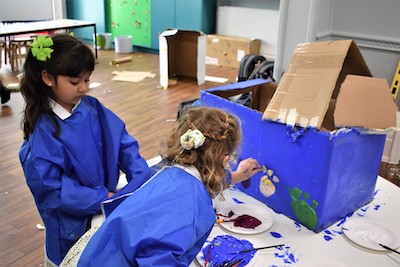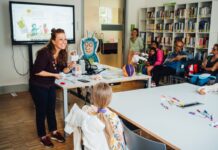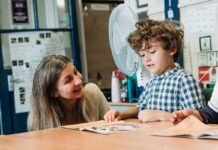The Power of Pupil Agency and How to Recognise which Schools do it well.
Building a personal desire to learn in our children is vital in helping them develop competence and confidence. Alison Melrose, Headmistress of Prince’s Gardens Preparatory School in Kensington, London, talks to us about the power of pupil agency and how to recognise which schools do it well.
‘If you want a lesson in how to learn, look no further than toddlers’, says Mrs Melrose, Headmistress at Prince’s Gardens Preparatory School. ‘Toddlers can become sudden experts in dinosaurs, able to identify, name and tell you all about their favourite ones,’ she says. ‘They can do this because they have a personal desire to learn, which as parents and teachers, we need to ensure we cultivate.’
This desire to learn, along with the ability to reflect and extend learning, is at the heart of ‘pupil agency’, which gives children a voice and choice in their education. A personalised approach, it sees children learn through activities that are meaningful to them and driven by their own interests. ‘Giving children a choice in how they learn helps them build the confidence and competence to be lifelong learners’, says Mrs Melrose. ‘They also develop transferable skills they’ll need for the future: flexibility, tenacity, creativity, communication and collaboration.’
 Pupil agency is an integral part of the education at Prince’s Gardens but recognising which schools do it well can be tricky. ‘It must be a whole school approach’ says Mrs Melrose. ‘Schools may have specific spaces to support personalised learning’. At Prince’s Gardens these spaces take centre stage.
Pupil agency is an integral part of the education at Prince’s Gardens but recognising which schools do it well can be tricky. ‘It must be a whole school approach’ says Mrs Melrose. ‘Schools may have specific spaces to support personalised learning’. At Prince’s Gardens these spaces take centre stage.
Forest school, which takes place in the School’s two acre garden, allows the outdoors and natural spaces to be integrated into the children’s learning, helping build self-esteem and encourage knowledge-gathering.
The makerspace, a learning environment that contains tools and components, allows children to enter with an idea and leave with a complete project. The space gives children the opportunity to explore, create new things and collaborate on ideas. The emphasis is on hands-on discovery, allowing children to develop solutions to real-world problems and learn about failure and resilience in a safe space.
If you are interested in knowing how well a school supports pupil agency, Mrs Melrose suggests asking the following questions:
- How do you cater for different learning styles?
- What opportunities are there for independent learning?
- How do you provide for children to choose how they learn?
- Is digital technology discreet or incorporated?
- What is your whole school approach to learning?
Parents can also support the approach with their children, adds Mrs Melrose. ‘Ask open-ended questions about topics they’re interested in and ask them to ask you questions,’ she advises. ‘Have a range of easily accessible materials at home, such as paper, pens, empty pots or Lego, so that they can choose how they express themselves. Or after a day trip out support them to use technology to present what they have learnt. You’ll be delighted with the results.’
Alison Melrose is Headmistress at Prince’s Gardens Preparatory School, a school for boys and girls aged 3-11 in the heart of Kensington, London. For more information on Prince’s Gardens Preparatory School, call 020 7591 4620, email admissions@princesgardensprep.co.uk or visit www.princesgardensprep.co.uk.





